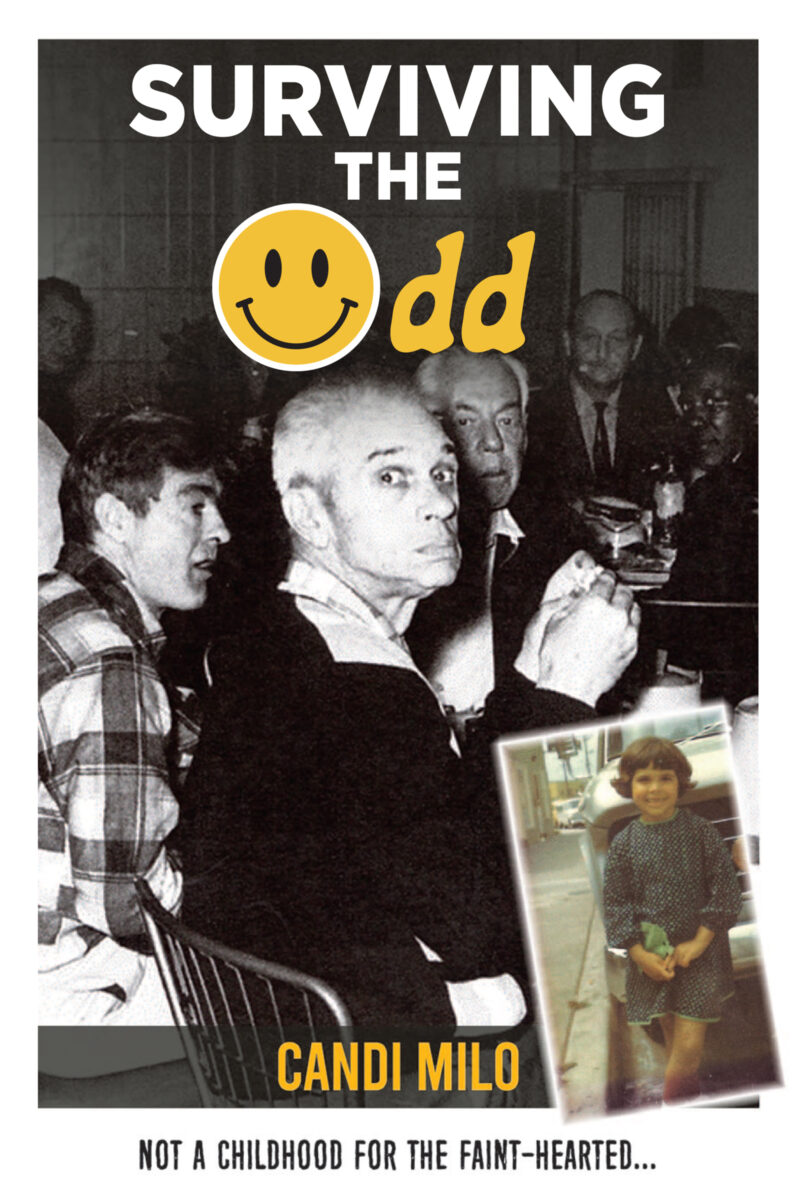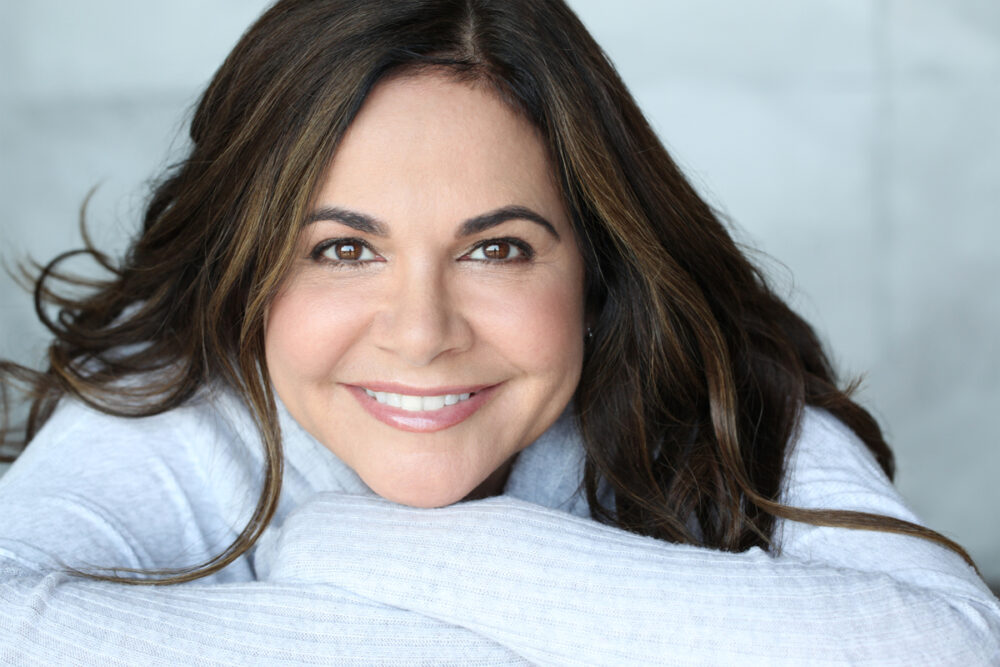
Candi Milo is one of the busiest voices in Toon Town today. In addition to taking on the mantle of Warner Bros. Animation’s Granny from the legendary June Foray (as heard in Space Jam: A New Legacy last year), over the course of her career Milo has helped bring beloved characters to life in countless film and television projects — including Annie Award-nominated turns as Dexter in Dexter’s Laboratory and The Flea in Mucha Lucha as well as her current roles in Looney Tunes Cartoons.
This week, fans who grew up with Milo’s voice will get to know the prolific performer more intimately with the release of her darkly comic memoir, Surviving the Odd, which chronicles her unusual childhood after her father, a fading stand-up star, decides to take in and care for mentally ill residents at the family home after California Governor Ronald Reagan’s notorious mental hospitals closure. In opening their home, Candi’s father also taught her about the real definition of family and the priceless value of an open heart.
Milo spared a few moments to answer our questions about the book and her remarkable career as she prepared for her reading and signing events this Saturday, October 8 at the Stevens Creek Blvd. Barnes & Noble in San Jose, Calif., and Saturday, October 15 at Barnes & Noble – The Grove in Los Angeles. (Tickets available now.)
Animation Magazine: Can you tell us what prompted you to write your new book and share so many personal memories about your challenging, unusual and ultimately inspiring childhood?
Candi Milo: I have often told this tale at cocktail parties or sometimes in performance when I do my nightclub act. And I always got the same response: “You’re kidding, right?” Well, I’m not.
My father was a very successful nightclub performer and with the advent of TV, nightclubs were fading away. And so he did what any normal singer/comedian would do: he opened a home for the developmentally disabled and emotionally ill. And it was our home, so I lived in a converted fraternity house, in a small apartment inside the home, with my siblings and parents. And our residents lived upstairs. We co-existed for a year or so, and then my family moved next door. It was called Milo Arms. And it was our family business. You know, like a cleaners or a bodega, except not. We cared for these people for 16 years — most of my young life.
What do you hope readers will take away from your memoir?
I hope people will read this and know that nothing in life is insurmountable. But to turn a blind eye against or ignore your neighbor who is struggling with something they have no control over, is not how I would do things in life. Success in life is not a zero sum game. Others do not have to fail for you to succeed. I think if you live in gratitude for what you have — whatever it is — you have a generosity of spirit that can truly help others. It can be a simple gesture of a smile or even safe eye contact. Also I hope they get that I am weird for a reason … I blame my dad. [Laughs]
Do you remember when you first decided to get into animation?
I do. I had been picked to be part of William Morris’ stable of voice actors after one of the agents heard me sing and do a little stand up at a wake. I am not kidding!
I auditioned for Steven Spielberg’s Tiny Toon Adventures, Dentyne gum and Perkins’ Restaurants. I booked all three things. But! I remember being very depressed about that, because I thought voice work was where actors went to die. I already was “other” and weird and I grew up the same way. I just wanted to be on TV, or Broadway, or SNL, or a back-up singer for Herb Alpert (which was weird in itself because he mostly performed instrumentals…!) anything mainstream.
And then … I walked into the room. And there were all these amazing actors. And we sang. And we were funny. The scripts were hilarious — and I was home. Sandwiched between Frank Welker and the very new (like me) Rob Paulsen. Heaven on Earth.
Is it true that Steven Spielberg gave your big break?
He literally did. I was at the callback — I want to say Hanna-Barbera; the old building on Cahuenga with the Flintstones FlintMobile stuck in the roof. But it could have been on the WB lot. Either way, I was intimidated — dressed incomprehensibly in a vintage ball gown from Aardvark’s in Venice and glow-in-the-dark camouflage tennis shoes. I was asked to read my sides and then a children’s story. So, I read The Three Little Pigs. And on the fly, I made the pigs suicidal and the wolf kosher. And I did all of the voice — all in the same breath — all at once.
Apparently, Steven was in the booth in the back. When I exited the studio he opened the door and said, “You are brilliant. Very, very good at this. You should do this.” And of course my response was — I was so nervous — “Do people tell you you look like Steven Spielberg?” Haha! (Groan.) And he said “Yes!” and closed the door on me.
I know you probably get this question a lot, but what was the most challenging voice acting experience of your career?
I think it was taking over the voice of Dexter [on Dexter’s Laboratory] from my friend Christine Kavanaugh. It was a fraught situation. She quit, for whatever reason, we can never know now that she has passed. And she was so special. So wickedly funny. The creators not only wanted a sound-alike, which was easy because Chris and I were friends, but they wanted her take on things. And I had a different sense of humor, slightly. A different slant or take. Like the difference between the Three Stooges and the Marx Brothers. Close, but not identical. And it was just hammering, hammering, hammering every Tuesday to change inflection or a pause. I was never allowed to act. I think the whole team was frustrated. I was, too. I felt I was very funny, but I was so over-directed it was painful. It was this way for five years. Long sessions. Grueling.
Looking back, I think we created some great episodes, but I wonder what would have come up if I could have done me. You know? I loved working with Genndy [Tartakovsky], he is magical and I understood his loss of his favorite actress — but I think he should have allowed Dexter to evolve. But then again, I do not sign anyone’s paycheck.

What are some of your favorite voices and why?
All of my favorite voices are “extra voices” or guest stars, because nothing is expected of this kind of character and I can just go for broke. Characters like Cheese from Foster’s Home for Imaginary Friends, Lupe from Fanboy & Chum Chum, Owl Woman Lady from Pig Goat Banana Cricket and on and on…
Who were some of your big mentors in the business?
Voice director Collette Sunderman really was instrumental in making sure I was seen and heard. Same with Kris Salter. Other voice actors would be Frank Welker, Rob Paulsen and, of course, Eric Bauza, who is just next-level genius and pushes for me on every gig he gets.
What do you love about working in the toon business?
I love the weirdness, the freedom to be big and loud and fast and funny. I love the camaraderie. We have all been in very small rooms together — for me, it’s been for 30 plus years — and to last in the company of people who you never really say goodbye to is a testament to how we love each other so much.
Favorite animated movie or TV show of all time?
From childhood: All Jay Ward cartoons and OG Looney Tunes the Merrie Melodies version. Today: Looney Tunes and the shorts that Pete Browngardt and Alex Kirwan are producing for WBA [Looney Tunes Cartoons].
What do you think about the trend of casting famous live-action stars in animation roles instead of professional voice over actors? Do you think that trend is on its way out?
I honestly don’t think that stunt casting will ever end as long as agents are also producers. They kind of package their peeps into animated shows. But I truly believe, as with Broadway stages, talent and ability will always win out. But I am absolutely delighted, thrilled and excited to see the diversity coming into the recording rooms. Amazing voice actors, all.
Best advice you can give future voice-over stars?
Read your script before you get into the room. Read the whole thing, not just your lines. And yes, I am laughing so hard while typing that. With COVID, recording times are tight — and you can’t be fumbling with intent or meaning, or missing efforts, grunts and falls, because you didn’t read your script.
That and have fun!
Surviving the Odd by Candi Milo will be available online and in stores on October 4 from New Haven Publishing (paperback, $19.95). Order from Barnes & Noble here.












